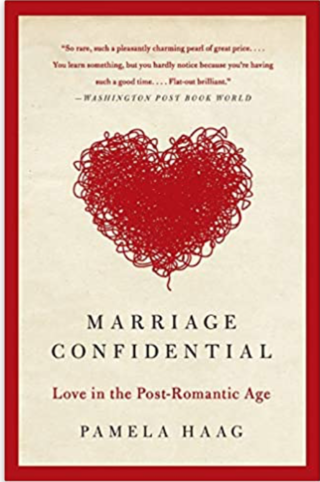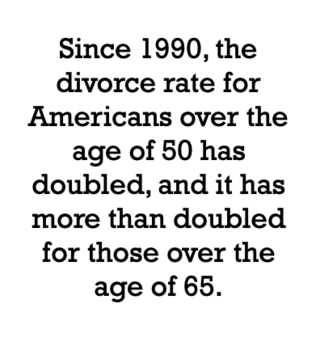Marriage
Is Your Marriage a Hoax? Is It Sexless? Loveless? Boring?
It's time to "come out" and live your relationship authentically.
Posted October 11, 2020 Reviewed by Lybi Ma
"It is imperative that we come out and let people know who we are and disabuse them of their fears and stereotypes." – Robert Eichberg regarding gays and lesbians (co-founder of NCOD, in 1993)

October 11 is National Coming Out Day. Sexual orientation is not a choice. But being anything other than binary and part of the mainstream is tremendously difficult. People hide their truth—that is until they are empowered to stop hiding and come out of the closet.
The same is true when it comes to marriage.
What Marriage Is Supposed to Be
If 100 people in a room were asked to describe marriage, they would likely write something similar: two people (in the not-so-distant past, it was just one man and one woman) who are monogamous, who have vowed to stay together forever, who live together and—if they're following all the rules—also raise children together.
Those living outside of our traditional Western coupling norm are often scrutinized and marginalized. Although many couples try to follow all the rules and abide by the one-size-fits-all marriage model, a large number of these folks are coming to realize that this model doesn't truly fit them in one way or another.

What Marriage Really Is
Regarding Monogamy
"...I am inclined to think that we should stop calling nonmonogamy a marital problem and call it a marital culture instead.” —Pamela Haag, Marriage Confidential
In her book, Haag, aptly describes the don't-ask-don't tell policy that couples have had throughout the years—including today. Haag highlights the charade that couples put on—both the cheater and the one being cheated on.
Obviously, not everyone being cheated on knows about it or is complicit. In fact, many are devastated when they find out their spouse had been leading a double life. Yet, we all know that a lot of people cheat.
Despite not wanting to admit it, cheating is fairly rampant in our culture. Estimates range from 25 percent to 72 percent of marriages experience infidelity. These estimates range widely based on how you define "cheating." To some, it's emotional flirting or looking at porn; to others, it's not cheating unless there are sexual acts with another person.
Even if we take the low number, that's still one-quarter of the married population for whom the monogamy thing doesn't work.

Regarding "'Til Death Do Us Part"
"People don't leave marriages because they're bad; people leave marriages because they could be better." —Esther Perel
The current divorce rate overall is at 39 percent. For older Americans, the number has doubled in the past 30 years and for those over 65, it's almost tripled.
Our marrying culture seems to be letting go of the fairy-tale version of living happily ever after. On top of that, we are living longer. many have said, "fifty is the new thirty."
The days of "you made your bed, now you must lie in it," are over. We have so many options on how, where, and with whom we want to live. People no longer feel they have to stay no matter what.
Regarding Living Together
"Young people are seeing that the old way of doing things isn't working, and they are experimenting with how to fix it." —John Curtis, The Business of Love
It makes sense on so many levels to live with your beloved, not the least of which is financial. That said, there is an increasing number of couples who have what's known as a LAT, Live Apart Together, Marriage. Most LAT couples are younger—aged 25-29, and the second-largest demographic group is the 50-somethings.
According to Karen Kobayashi of the University of Victoria, the number of LAT marriages has already risen sharply in recent years and will only continue to rise.
There are two main reasons that couples opt for this type of marriage:
- They each work in different cities (prevalent during the last recession (2007-2010), or they are in the military
- They have the financial wherewithal to live in their own places.
LAT marriages get a bad rap sometimes. People think they are for those who are afraid of intimacy. Nothing could be further from the truth. It can be argued that they have more intimacy because they spend quality time together.
What's nice is your relationship doesn't get bogged down with the tediousness of life. The mundane aspects of living with another can be avoided by simply "going home." When couples get together, it's more likely to be because they want to get together.
The downside might be that you have to plan to see your mate and planning may be more cumbersome.

Regarding Co-parenting
"Kids need [their parents to have] a good enough marriage." —Paul Amato
For the majority of couples with kids, romance almost never makes it to the top of the to-do list. After taking care of these young humans all day, there's not much energy (or desire) left at the end of the evening for making love.
Often, couples slip into what I call a Parenting Marriage where they co-exist as parents and lose their romantic connection. The pair goes along, living as if they are "traditional" on the outside, but feeling like they're really living a lie. Little do these couples know, many more are opting to cohabit and raise kids together as co-parents, rather than as romantic partners. In fact, there are websites to meet potential co-parents.
Come Out in Your Marriage
I like to say that the world doesn't need more married people; it needs more happy and authentic people.
Regardless of how you are altering the rules of matrimony, you should know that marriage is changing across the globe. And, it needs to change more because it's holding us back as a culture. It no longer fits who we are.
We need to allow for all of our differences. I encourage anyone hiding behind closed doors to "come out" about your alternative lifestyle so that we can make all variations of marriage mainstream. When we own our differences, and live authentically and unapologetically, we truly make the world a better place.
No part of this publication may be reproduced without the express written permission of the author. Failure to comply with these terms may expose you to legal action and damages for copyright infringement.




